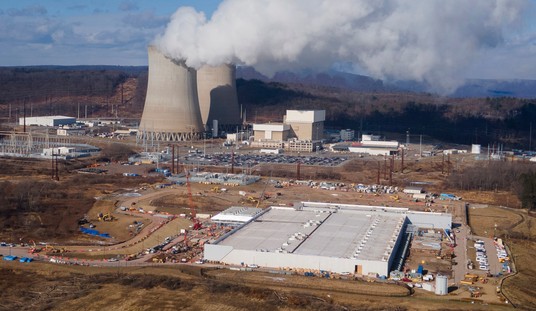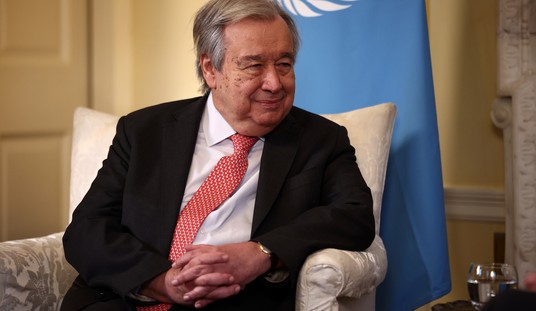While I’d rather not engage in the often fruitless task of auditing the ideological foundations of the 20th Century’s evil empires, it sometimes becomes necessary in an effort to combat misconceptions. That is particularly true when vaunted institutions with an interest in forgiving Communism of its brutal flaws seek to rewrite history in search of absolution for socialism’s sins.
This familiar behavior pattern marred an otherwise groundbreaking documentary shot by the BBC’s producers inside the Democratic People’s Republic of Korea several months ago. The film features exclusive images of the Hermit Kingdom and exposes many of the tragedies that characterize daily life for North Koreans. But when the producers and expert guests seek to classify the unique brand of monarchical socialism practiced in the DPRK, the film’s narrative flies right off the rails.
The documentary originally aired in April, 2013, but it is new to me. I guess many of you missed its original airdate as well, but apologies to those of you who have seen this documentary before.
“Many see North Korea as a communist state,” the film’s host said at the 4:50 mark. He noted that, as recently as 2012, portraits of Marx and Lenin hung prominently above Kim Il-sung Square. By 2013, however, they had been removed.
This seems to have been interpreted by the BBC’s producers as a signal that North Korea’s Juche scholars had abandoned Marxism in favor of something else entirely. Some might even call this critical analysis a form of “Kremlinology,” but that term is loaded with socialist implications.
“North Korea has a higher share of the population in uniform than Nazi Germany and fascist Italy had until the Second World War,” said Brian Myers, an American professor of international studies at South Korea’s Dongseo University. “So, I think it’s much more accurate to look at North Korea as a far-right state. An ultra-nationalist state.”
“It is deeply racially biased,” former British ambassador to North Korea John Everard added. “Kim Jong-il was an unabashed admirer of Hitler, and copied him quite consciously down to the Nuremberg marches, which are staged in Pyongyang to this day.”
One imagines that the definition of Communism we are expected to embrace today is that brand of socialism now practiced by China. Although the hyper-capitalism espoused by Beijing’s leaders would hardly have been recognizable to even the reformer who set the People’s Republic down its path of revitalization, Deng Xiaoping.
North Korea is not a perversion of Marxist Communism. It is the warped form that a nation that has the misfortune to embrace that corrupted system ultimately develops.
As is often remarked, neither Hitler nor Mussolini would have considered themselves “far-right,” though they would have worn the badge of nationalism proudly. In fact, by World War II, nationalism was an ideological weapon deployed by every major combatant including the Soviet Union.
Communist solidarity irrespective of national boundaries was always a mirage. The ideal officially died when Stalin dissolved the Comintern amid world war in 1943. The latter half of the 20th Century was one characterized by splits within the communist world; Yugoslav socialism was distinct from Russian Communism, which was divergent from Maoism, which was not to be confused with the brand of Marxism practiced in Hanoi.
Further, it is a narrow reading of history to contend that the fascist states of Europe had a monopoly on racism (a concept antithetical to theoretical Marxism). In the earliest days of the Russian Revolution, Moscow imposed policies on the republics and autonomous regions designed to combat what the Bolsheviks saw as the scourge of “Russian chauvinism.” In effect, it was a form of affirmative action. Only an Uzbek could be tasked with managing Uzbek affairs. This was the same for Tajiks, Tartars, Chechens, et cetera. Only under Stalin was this policy abandoned when it became clear that ill-suited candidates were occupying offices for which they were not qualified. Under Uncle Joe, “Russian chauvinism” returned with a vengeance.
Ask any of the descendants of the thousands of Western minorities who traveled to the Soviet Union in the 1920s under the misguided impression that it was a colorblind society how their relatives were treated. If they ever heard from them again, most will confess that it was not the paradise that was advertised.
To thoroughly examine and refute the assumptions contained within this documentary about the perverse ideology of North Korea’s ruling class would take quite a bit of space, but it is clear that the documentary’s producers (rather than the experts whose comments may have been edited due to time constraints) believed that the DPRK cannot possibly represent true socialist thought. In fact, it is the prototypical communist country.







Join the conversation as a VIP Member